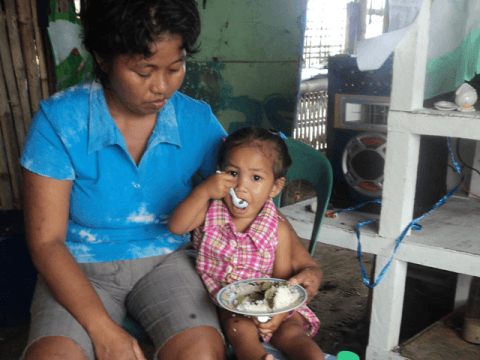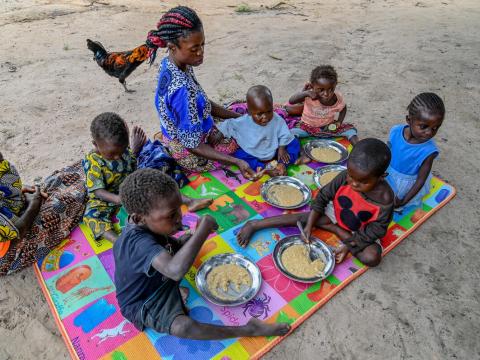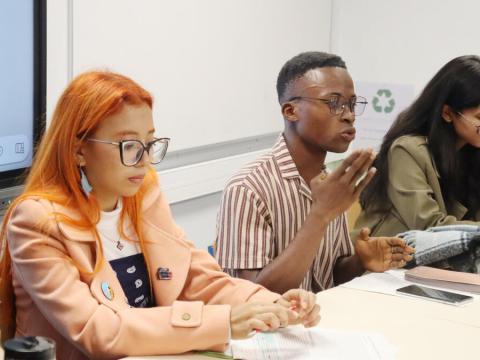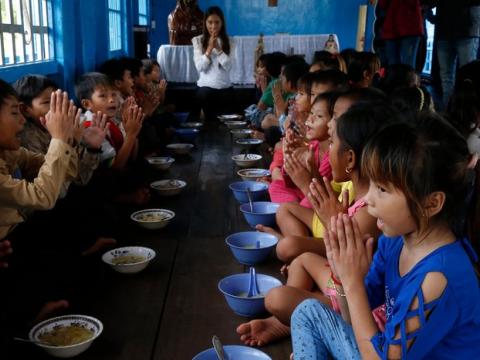
Turning Ideas into Impact: How the Global Nutrition Community Is Acting Now
What does it take to end malnutrition in a way that is global, sustainable, and equitable?
Rome Nutrition Week 2025, held from 26 to 30 May, brought us closer to that answer. Under the theme “Coherent Policy and Action for Better Nutrition,” the event gathered governments, donors, civil society, and community voices. It followed major moments such as the World Health Assembly and Nutrition for Growth Summit, and looked ahead to critical global opportunities including COP30, the UN Food Systems Summit +4, and the International Conference on Financing for Development.
The message throughout the week was clear:
Progress demands more than good intentions. It calls for coherence, investment, and collaboration across systems that shape people’s lives.
From Policy to Progress
From the opening session "The Power of Joining Forces for Policy Coherence, Optimized Efficiencies and Nutrition Impact" the Global Alliance Against Hunger and Poverty (GAAHP) was highlighted as a key mechanism to translate policy coherence into real impact. It is evident that frameworks alone won’t nourish children or empower women. One truth came up again and again. Nutrition does not stand alone. It connects directly to climate resilience, education, health, and trade. Many participants emphasised that nutrition must be part of national development strategies from the start.
What Integration Really Means
At the session titled “Driving Meaningful Action on Nutrition Integration,” countries discussed the Nutrition Integration Compact. First launched at the 2025 Nutrition for Growth Summit, it is now supported by 84 governments and organisations.
The Compact calls for governments to embed nutrition goals into policies across health, education, climate, and trade. Integration makes development smarter. It ensures that action in one sector reinforces impact in another. More details are available at Scaling Up Nutrition.
Nutrition Happens in Communities
Speakers from IFAD and the World Bank reminded us that nutrition is often a matter close to home. Real progress starts in communities. In the session “Feeding Change,” participants shared examples of what works:
- Schools sourcing food from smallholder farmers
- Local governments using procurement to build inclusive food systems
- Indigenous leaders sharing knowledge that strengthens resilience and dignity
These are not pilot projects. They are proof that financing aligned with local leadership can lead to a significant impact.
Women and Girls Lead Change
One session stood out for its urgency and clarity. “Women’s Rights and Empowerment in Agrifood Systems” called for a shift in how women and girls are included. The focus must move beyond their participation to their leadership.
When women and girls have access to land, credit, markets, and decision-making power, maternal and child nutrition improves. This is especially vital as climate pressures continue to increase.
Driving Solutions That Work
World Vision is playing a leading role in turning global commitments into community-level change. Through our ENOUGH campaign, focused on ending child hunger and malnutrition through bold policy shifts, and our leadership in GAAHP, we are turning knowledge into impact.
We are advocating for food security and nutrition to be embedded into the policies that shape children’s futures. We support governments and communities in leading, designing, and delivering lasting solutions. We know that hunger and malnutrition are deeply linked to fragile livelihoods and climate vulnerability. That is why we are investing in climate justice, ensuring that children are at the centre of climate response, and that solutions work for both people and planet.
As the global community looks ahead to the 2nd Global Summit of the School Meals Coalition, G20 in South Africa (2025 G20 Presidency), COP 30, and the 4th International Conference on Financing for Development, World Vision will continue to drive efforts that prioritise the needs of children.
Our challenge to everyone, especially decision-makers is to say ENOUGH to children's Hunger and Malnutrition; to champion coordinated, courageous, country-led action; and to do everything possible to realise a future where every child access sufficient access to enough, nutritious food.
Andrea Galante is World Vision’s Senior Policy Advisor on Food Security and Nutrition, Advocacy, and External Engagement.


